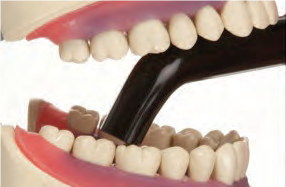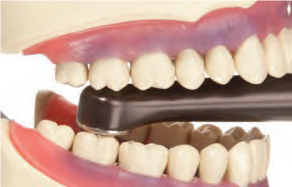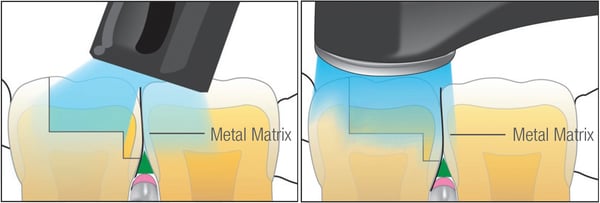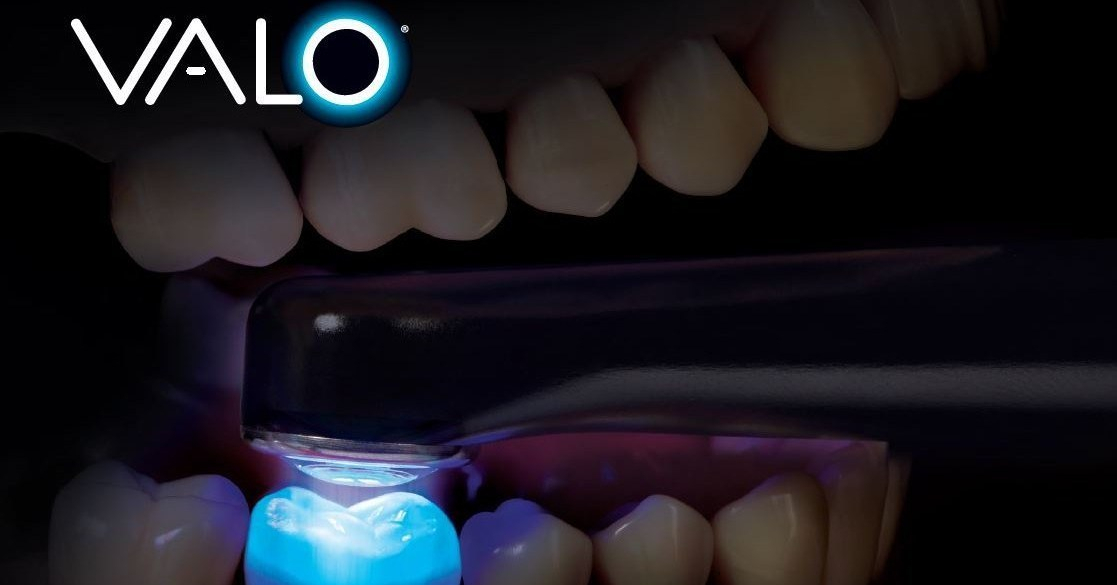The average mouth opening distance of an adult male patient is 30mm1. This limited range, coupled with the posterior placement of many restorations, makes it nearly impossible to position a traditional curing light with an oversized head or angled light guide. This typically forces the operator to tilt their light to a 45-60 degree angle, making direct irradiation of light on the restoration in posterior teeth nearly impossible.


The 12mm aperture of the lens simultaneously allows for easy positioning and coverage of a larger surface area, saving time and effort. With the VALO Grand® curing light, the patient only needs to open his/her mouth a comfortable 5 degree angle to allow access for the VALO Grand® lens.
The VALO Grand® curing light head height only measures 11 mm high, allowing it to fit over posterior teeth without causing patient discomfort. Because the wand-style body is designed without the addition of a light guide, it reaches all areas of the mouth without requiring you to overstretch a patient’s TMJ and soft tissues—a common problem that can occur with other lights. In addition, the VALO Grand® light’s larger footprint can cure the entire surface of a Class II posterior preparation in just one exposure.
 Direct and perpendicular access to the restoration is particularly critical in posterior restorations where metal matrices are used, which will block light and prevent it from reaching the bonding interface.
Direct and perpendicular access to the restoration is particularly critical in posterior restorations where metal matrices are used, which will block light and prevent it from reaching the bonding interface.
1. Calder I, Picard J, Chapman M, O’Sullivan C, Crockard HA. Mouth opening: a new angle. 2003;99(4):799-801.







